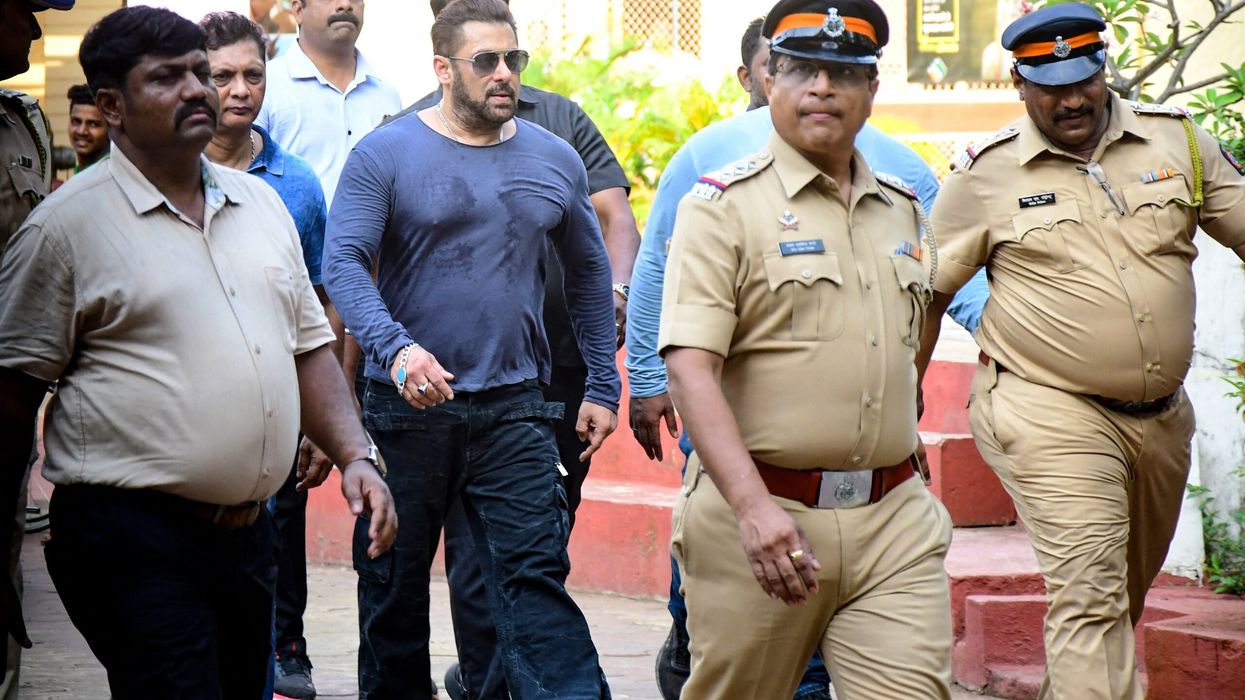Bollywood actor Salman Khan has told the police that he believed the Lawrence Bishnoi gang carried out the firing at his residence in April this year with the intention to kill him and his family members.
The actor's statement is part of the charge sheet filed by the Mumbai police in a court here in connection with the incident.
Khan told the police he heard a firecracker-like sound while asleep at his residence in Galaxy Apartments in the early hours of April 14. His police bodyguard informed him around 4:55 am that two people on a motorbike had fired at the first-floor balcony.
Khan mentioned previous attempts to harm him and his family, adding that his bodyguard lodged a complaint regarding the firing at the Bandra police station.
Later, Khan learnt that gangster Lawrence Bishnoi and his brother Anmol Bishnoi had confessed and taken responsibility for the attack in a Facebook post, according to his statement.
The statement also noted that Lawrence Bishnoi and his gang members had previously discussed killing Khan and his relatives. "So, I believe that Lawrence Bishnoi, with the help of his gang members, carried out the firing incident when my family members were sleeping and (they were) planning to kill me and my family members," Khan said.
The actor also told the police that he and his family had received several other threats in recent years. In 2022, a threat letter was found on a bench opposite his building, and in March 2023, they received an email threat from the Lawrence Bishnoi gang. In January 2024, two unidentified persons tried to trespass into his farmhouse near Panvel using fake identities, he noted.
Police filed the 1,735-page charge sheet in the firing case before the special court for Maharashtra Control of Organised Crime Act cases earlier this month.
The court recently took cognisance of the charge sheet, stating that prima facie there was enough material to proceed against the six arrested accused.
Those arrested in the case were Vickykumar Gupta, Sagarkumar Pal, Sonukumar Bishnoi, Anujkumar Thapan (now deceased), Mohd Rafiq Choudhary and Harpal Singh.
Thapan allegedly committed suicide in police custody after his arrest. The other five are now in judicial custody. (PTI)




